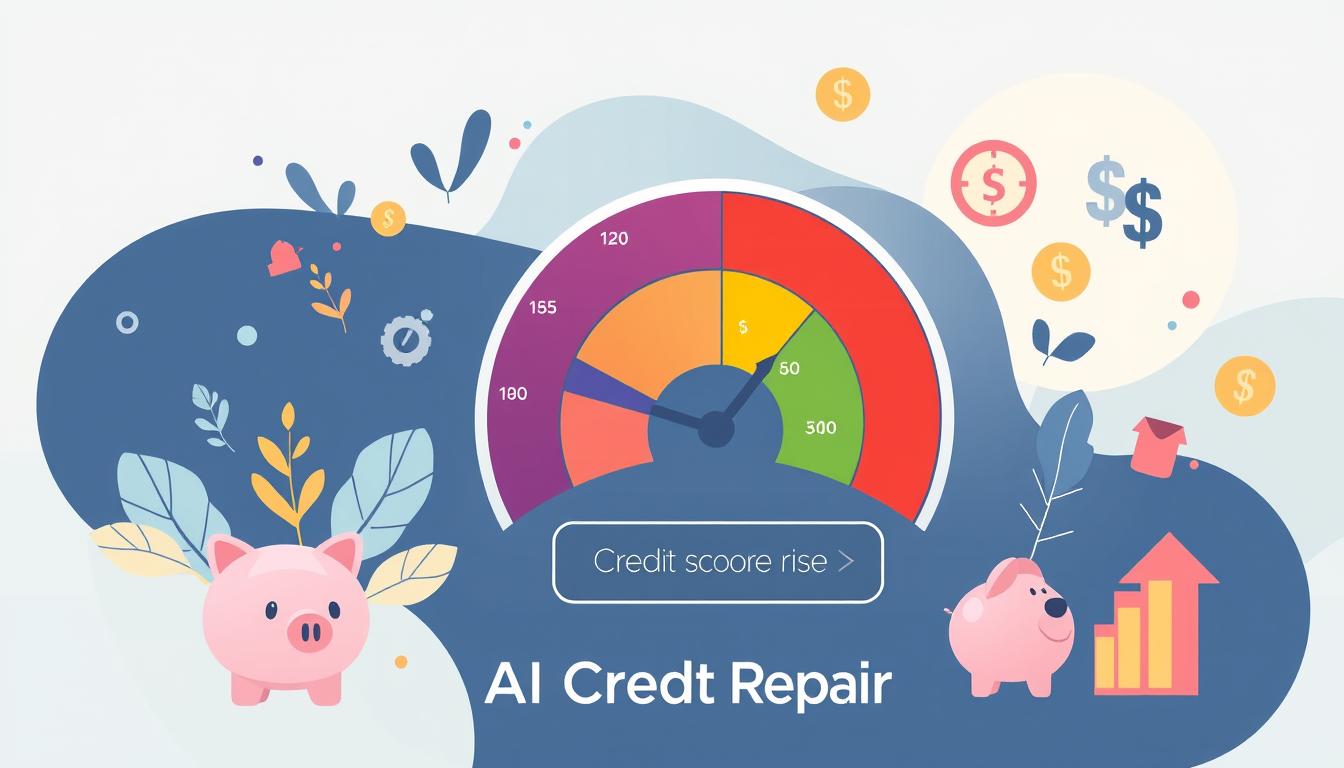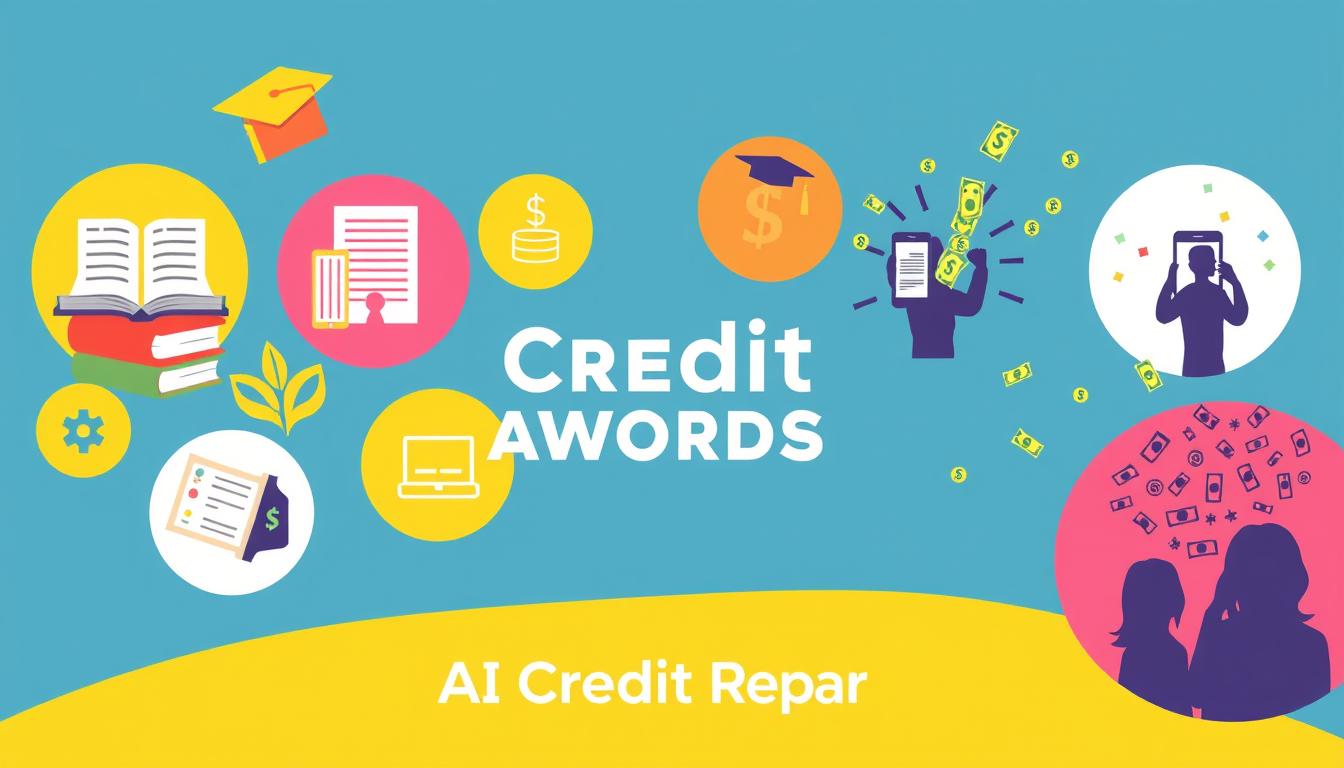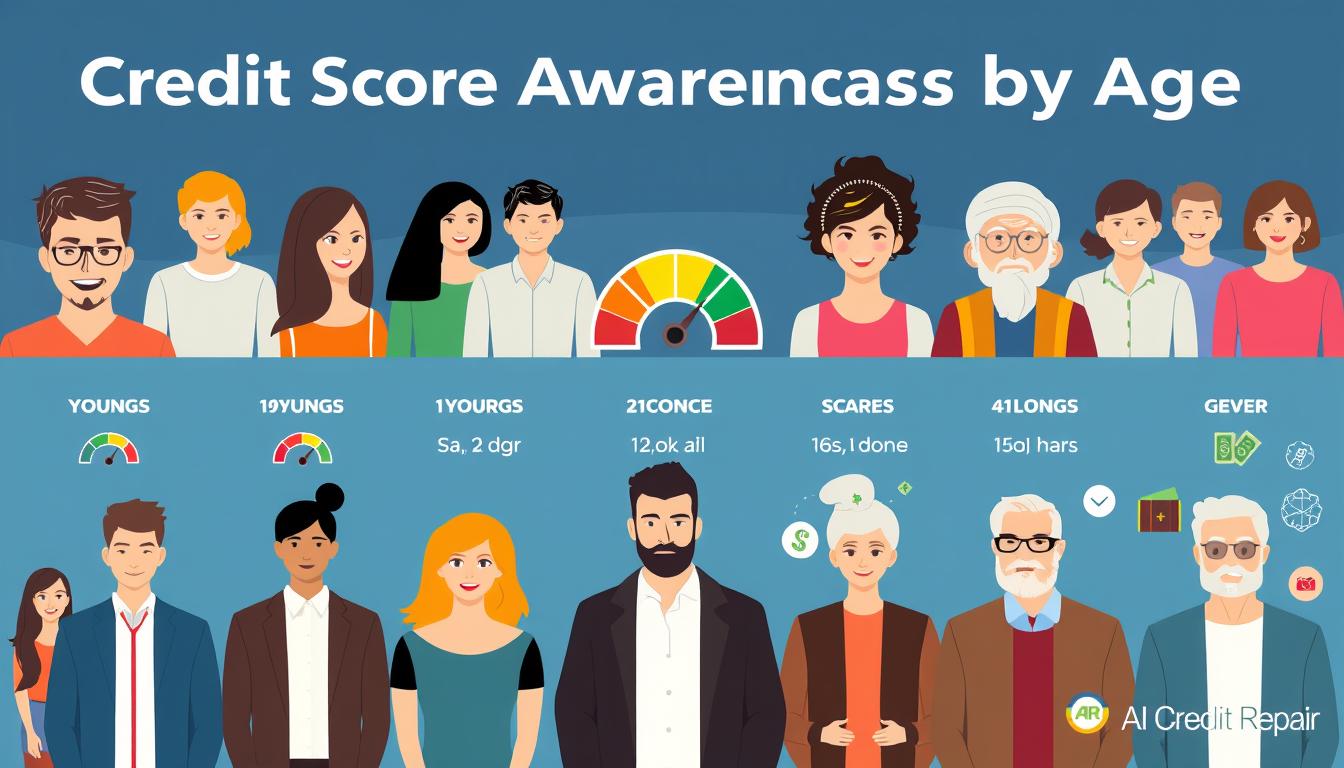Credit scores play a vital role in our financial lives. They affect loan approvals, interest rates, and overall financial health. Yet, many Americans remain unaware of their credit scores or their significance.
This article explores credit score awareness in the United States. We’ll look at recent survey results and factors influencing credit score knowledge. We’ll also discuss why staying informed about your credit score matters.
Key Takeaways
- Credit scores are an important financial metric that can impact various aspects of an individual’s life, from loan approvals to interest rates.
- Recent surveys indicate that a significant portion of Americans are unaware of their credit score or its importance.
- Factors such as age, financial education, and access to credit report information can influence an individual’s credit score knowledge.
- Improving credit score awareness can empower individuals to make informed financial decisions and take steps to improve their creditworthiness.
- Accessing free credit report services and learning about credit score factors can help Americans better understand and manage their credit profiles.
Understanding Credit Scores: A Crucial Financial Metric
Credit scores are vital in our financial lives. This three-digit number helps lenders, landlords, and employers evaluate creditworthiness. Knowing how credit scores work can help you make smarter money choices.
Why Credit Scores Matter
Your credit score affects your ability to get loans, rent homes, or find jobs. Lenders use it to judge lending risk. A higher score often means better loan terms and lower interest rates.
Landlords check credit reports to assess financial responsibility. Some employers may also consider credit history when hiring.
How Credit Scores are Calculated
Credit scores use a complex formula considering several factors. These include payment history, credit use, credit mix, and credit history length.
Paying bills on time and keeping credit card balances low can boost your score. Having different types of credit can also help improve it.
Regularly check your credit report for mistakes. Fix any errors you find. This helps ensure your credit score accurately shows your creditworthiness.

“Your credit score is the foundation of your financial well-being. Knowing and managing it can open doors to a world of financial opportunities.
The Importance of Knowing Your Credit Score
A healthy credit score is vital for financial stability. It opens doors to various financial opportunities. Regularly checking your score can greatly benefit your financial well-being.
Knowing your credit score helps spot errors in your credit report. These mistakes can lead to higher interest rates or credit denials. Staying informed allows you to fix issues and keep a good credit history.
Your credit score can also alert you to identity theft. Unexpected drops or strange accounts are warning signs. Quick action can protect your financial identity and prevent further harm.
Your credit score affects many financial opportunities. Lenders, landlords, and employers often use it in decision-making. Staying informed helps you make smart choices about loans and credit cards.
A good credit score can open doors to better financial opportunities, while a poor one can limit your options and lead to higher costs. Knowing your credit score is the first step towards taking control of your financial future.
The benefits of knowing your credit score are significant. It helps protect your credit and fix errors. This knowledge leads to better financial decisions and a more secure future.

What Percent of Americans Do Know Their Credit Score?
Understanding your credit score is key to financial stability. Yet, only a small portion of Americans know their score. Let’s explore the latest data on credit score awareness across different groups.
Recent Survey Findings
A study by the Consumer Federation of America and VantageScore Solutions revealed some interesting facts. Just over 60% of Americans know their credit score. This shows a big gap in financial knowledge.
Credit scores matter for loans, mortgages, and even jobs. The survey found that awareness varied by age and income. Younger people and those with lower incomes were less likely to know their score.
| Demographic Group | Percentage Aware of Credit Score |
|---|---|
| Overall | 60% |
| Age 18-34 | 53% |
| Age 35-64 | 64% |
| Age 65+ | 65% |
| Household Income | 54% |
| Household Income $50,000 – $99,999 | 62% |
| Household Income $100,000+ | 71% |
These results show we need better financial education. More awareness campaigns could help Americans understand their credit scores. Learning to monitor credit scores is also important.
Factors Contributing to Credit Score Awareness
Understanding what shapes credit score knowledge is vital for tackling America’s financial literacy gap. Key factors include access to financial education and personal financial habits. These elements play a crucial role in credit awareness.
Financial education significantly impacts credit score knowledge. People with formal training in personal finance often understand credit scores better. Those without such resources may struggle to grasp the importance of a healthy credit profile.
An individual’s financial behaviors also affect their credit score awareness. Active credit monitoring and efforts to improve credit health lead to better knowledge. These habits help people understand their credit standing more clearly.
Educating consumers about credit scores and the factors that influence them is crucial in empowering individuals to take control of their financial well-being.
Demographic factors like age and socioeconomic status influence credit score awareness too. Younger adults and those from lower-income backgrounds may have less financial education. This can result in less understanding of credit scores and their management.
Addressing these key factors can improve financial literacy nationwide. Policymakers, educators, and financial institutions must work together. Their efforts can empower consumers to make informed decisions about their credit health.

Demographic Differences in Credit Score Knowledge
Credit score awareness varies among different demographic groups. Understanding these differences can reveal which groups are more informed about their credit standing. This knowledge helps target financial education efforts effectively.
Age and Credit Score Awareness
Financial education and experience affect credit score awareness by age. Younger people may know less about credit scores and their calculation. Older adults often understand credit scores better due to more financial experience.
They may grasp the importance of credit scores and how to monitor them effectively. This knowledge comes from years of managing their finances.
| Age Group | Percentage Aware of Credit Score |
|---|---|
| 18-34 years old | 65% |
| 35-54 years old | 78% |
| 55 and older | 84% |
The data shows a clear link between age and credit score knowledge by age. Older adults are more aware of their credit scores than younger people.

These findings highlight the need for targeted financial education. All age groups should understand the importance of credit scores. Learning how to manage credit effectively is crucial for financial well-being.
The Impact of Financial Education
Financial education programs empower people to make smart money choices. These programs boost credit score awareness and financial literacy. They can change lives for the better.
People who join these programs learn about good credit scores. They discover how to manage their money wisely. Topics often include budgeting, debt control, and credit monitoring.
These skills help people navigate personal finance with confidence.
- Financial education programs have been linked to improved credit scores and reduced delinquency rates.
- Targeted community-based initiatives have been particularly effective in reaching underserved populations and addressing the credit score knowledge gap.
- Integrating financial education into school curriculums can help build a strong foundation of financial literacy from an early age.
Financial education benefits more than just individuals. It can boost a community’s financial health. When people understand credit scores, they manage money better.
This leads to less debt and more savings. It also improves access to credit and other financial services.
| Financial Education Program | Average Increase in Credit Scores | Decrease in Delinquency Rates |
|---|---|---|
| ABC Financial Literacy Initiative | 42 points | 15% |
| XYZ Credit Awareness Program | 38 points | 12% |
| Community-based Financial Education | 35 points | 18% |
Financial literacy and credit knowledge are vital today. Investing in education programs can empower people and strengthen communities. It promotes overall financial well-being for everyone.
Financial education is a powerful tool that can transform lives and build a more financially secure future for individuals and communities.
Checking Your Credit Score: Options and Resources
A healthy credit score is vital for your financial well-being. Several options exist to help you check and monitor your credit score regularly. This section will guide you through how to check credit score and use free credit report services.
Free Credit Report Services
Checking your credit score is easy with free credit report services. These services offer access to your credit report and score at no cost. Here are some popular free credit report services:
- AnnualCreditReport.com: Offers a free credit report from each of the three major credit bureaus (Experian, Equifax, and TransUnion) once per year.
- Credit Karma: Provides free access to your credit scores from TransUnion and Equifax, as well as credit monitoring and personalized recommendations.
- Discover Credit Scorecard: Allows you to monitor your credit score from Experian for free, even if you’re not a Discover customer.
Regular credit score checks through these services keep you informed about your financial health. You can take steps to maintain or improve your credit standing.
Watching your credit report and score is key to making smart financial choices. It helps protect your financial well-being. Use these resources to make monitoring your credit score a habit.
Improving Your Credit Score: Strategies and Tips
A strong credit score is vital for your financial health. You can boost your credit profile with proven strategies. Paying bills on time shows lenders your reliability and financial responsibility.
Manage your credit card utilization by keeping balances low. This demonstrates your wise use of credit. Consider adding different account types to diversify your credit mix.
Building credit history is crucial for a better score. Longer credit histories give lenders more data to assess. Keep accounts open and use credit responsibly over time.
By following these tips, you’ll improve your score steadily. This can lead to better financing options in the future.

